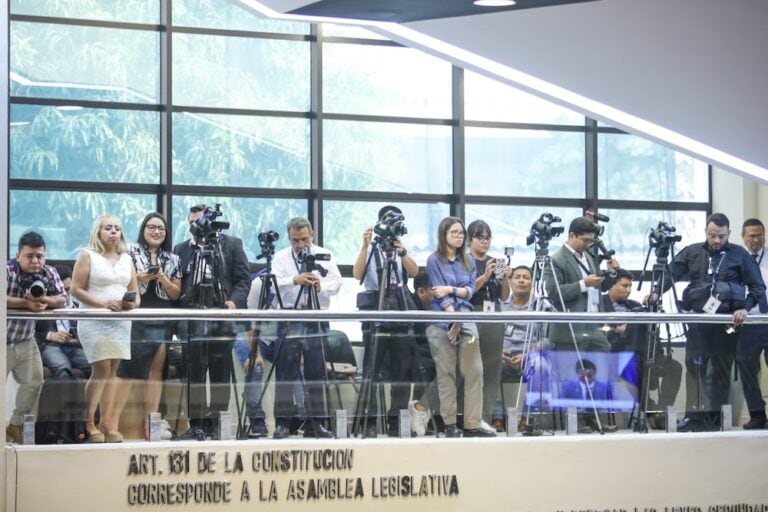This is an extract from the report on El Salvador, from the series of reports to come out of the research under the Unfreedom Monitor.
This statement was originally published on advox.globalvoices.org on 19 May 2023.
Authoritarian regimes have long had a complicated relationship with media and communications technologies. The Unfreedom Monitor is a Global Voices Advox research initiative examining the growing phenomenon of networked or digital authoritarianism. This extract is of the executive summary of the report on El Salvador, from the series of reports to come out of the research under the Unfreedom Monitor. Read the full report here.
When El Salvador ended a civil war (1980–1992) through the Peace Accords between the government and the guerrilla movement in 1992, the United Nations presented the country as an example of peace negotiation and conflict resolution around the world. Since the arrival of President Nayib Bukele to power in 2019, El Salvador is becoming a case study for the emergence of a new form of authoritarianism and populism.
In just three years, Bukele has been able to build a complex political phenomenon that some have called “Bukelism,” which entails a mix of a millennial image, promoting the use of Bitcoin as a legal tender in the country, an anti-corruption and anti-traditional political parties narrative, and rhetoric against the United States’s influence on Salvadoran politics. Bukele has quickly moved to create a new political party, Nuevas Ideas, which controls a large majority of the 84 deputies of the Legislative Assembly and the most important local governments in the country. With this support, Bukele promoted a controversial removal of five magistrates of the Constitutional Chamber of the Supreme Court and the Attorney General in May 2021. Thus, Bukele controls the executive, legislative, and the crucial Constitutional Chamber of the Supreme Court of Justice, which just recently re-interpreted the constitution and allowed the possibility of Bukele’s reelection in 2024.
Bukele, who did not finish college and worked in the advertising industry before entering politics, has been recognized for his use of social media, especially Twitter, and other platforms to convey a message to his followers. Since he became president, Bukele has used Twitter to communicate orders to public officials, announce the approval of decrees and respond to any event in the country.
This report analyses two major incidents: the disclosure that Pegasus spyware has been used against journalists from independent media outlets and representatives of civil society, and Bukele’s legal advisor’s threats against two women journalists for not revealing anonymous sources included in a news story. The second event represents a trend of online harassment and threats against women journalists promoted by President Bukele and public officials and replicated by Bukele’s supporters, troll centres, and pro-government influencers on social media.
Through the analysis of these two main events, this report attempts to respond to the key research question: What are the main motives for, methods of, and responses to digital authoritarianism in El Salvador? Thus, this research identifies the major characteristics, strategies, and narratives interplaying in the configuration of digital authoritarianism in El Salvador. In conclusion, there is substantive evidence that Bukele and Bukelism are constructing a political project based on populism and authoritarian practices, and within this process, one key objective is to discredit the role of independent journalism, and, using spyware technologies such as Pegasus, to legally establish a monitoring system of critical voices and political opponents.
Consequently, this form of digital authoritarianism not only restricts online and offline freedom of expression in El Salvador but also reflects the dynamics of digital repression and surveillance inspired by other authoritarian regimes around the world.
Read the full report here.




